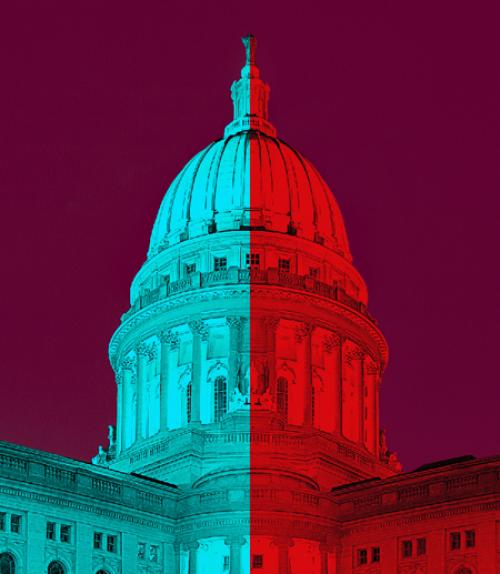Excitement – and anxiety – about the 2020 election ratchets higher with the release of each new poll and prediction. But polls don’t tell the whole story and many forecasts in 2016 were proved wrong: what can we expect this year?
In “Between the Polls: How Voters Decide,” a webinar held on Oct. 19 at 7 p.m., a panel of experts examined how we learn about voters and their decisions and how those data drive election forecasts. They also explored how polling is covered in the media and methods journalists use to gauge voter interest. The webinar was organized through the Distinguished Visiting Journalist Program in the College of Arts and Sciences (A&S).
“To describe this election cycle as unusual and consequential may be an understatement. We’re fortunate to have world-class experts who can shed light on how voters are making their choices and how the media are reporting on those decisions,” said Ray Jayawardhana, the Harold Tanner Dean of Arts and Sciences. “Journalists work hard to assess and report on voter interest, but their coverage can have its own impact on voter decisions.”
Marc Lacey ’87, national editor for The New York Times and the 2020 Distinguished Visiting Journalist, was one of four panelists.
"Polls are a critical way of understanding the sentiment of voters in the lead up to an election,” said Lacey. “But this feels like a presidential election with so many unknowns, and it is not likely that journalists will be finished covering who won on election eve."
The other four panelists, all A&S faculty, were:
- Alexandra Cirone, assistant professor of government, is a faculty fellow with the Institute of Politics and Global Affairs (IOPGA). She studies historical political economy, democratization and party systems in new democracies, and fake news and misinformation campaigns;
- Peter Enns, associate professor of government, executive director of the Roper Center for Public Opinion Research, co-director of the Cornell Center for Social Sciences, and co-founder of Reality Check Insights. His research focuses on public opinion and political representation, as well as mass incarceration and the legal system;
- Sergio Garcia Rios, assistant professor of government and Latina/o studies, is director of polling of Latino voters for Univision News. He studies voter turnout, political participation and public opinion, especially among Latino immigrants; and
- Jamila Michener, associate professor of government, is co-director of the Cornell Center for Health Equity. She is an expert on the politics of race, poverty and public policy in the United States.
The panel was moderated by Douglas Kriner, the Clinton Rossiter Professor in American Institutions in the Department of Government (A&S) and faculty director of IOPGA.
Co-hosted by the College of Arts & Sciences and the IOPGA, the webinar was supported by Alumni Affairs and Development and powered by eCornell.




